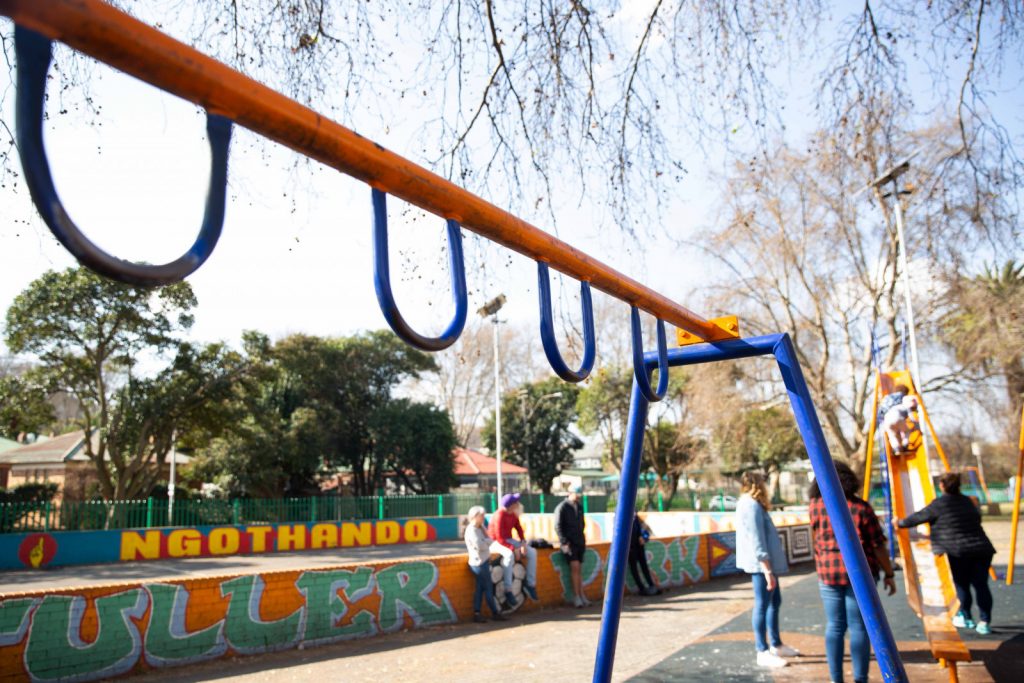When a primary school teacher in the Western Cape suspected that one of her pupils was being sexually abused, she did everything she could to help. (Dylan Bush/ Bhekisisa)

“It was a Wednesday in 2019, and one of the little girls in my grade one class came in smelling like sex. As an adult, you just know. It’s that odour when you haven’t washed yourself after intercourse. A baby shouldn’t be smelling like that.
“The children sitting around her were complaining about it. When I spoke to her after class, she said everything was fine.
“The next day, her sister (who’s in a different class) couldn’t sit down. When a colleague asked her why she was standing up during the lesson, she said her vagina was sore.
“We asked who was hurting them, but we were struggling to understand them. They’re from Zimbabwe, and their English isn’t very good.
“We called social services, but they didn’t come straight away so we had to let the girls go home with their father’s cousin, who picked them up from school each day.
“That was Thursday.
“When the social workers didn’t show up by Friday, we refused to let the children leave. We stayed with them at school until 5pm, waiting for social services to turn up.
“We tried to phone their parents, but they were both working in Zimbabwe. We couldn’t reach them.
 When a primary school teacher in the Western Cape suspected that one of her pupils was being sexually abused, she did everything she could to help. (Dylan Bush/ Bhekisisa)
When a primary school teacher in the Western Cape suspected that one of her pupils was being sexually abused, she did everything she could to help. (Dylan Bush/ Bhekisisa)
“When the uncle showed up at the school, he demanded that the children be released. He went to the police station to say that the school is keeping the girls unlawfully.
“Since he’s their legal guardian, and because social services hadn’t investigated, we had to let them go.
“Later that same evening, social services went to the address where they were staying.
“But there was nobody there. The children were gone. The neighbours said the house was emptied on Friday.
“We sent out alerts, we were looking for those girls everywhere.
“But it would be another four days until we found them, living at a different house.
“There were more children from our school living there. Men would come to the house, and they could rent a room — and a body.
“It turned out the father’s cousin was the mastermind behind the whole thing, but there were so many other people involved.
“The children were taken to Red Cross War Memorial Children’s Hospital. The doctors found signs of sexual abuse.
“They were sent into protective custody and a legal case was opened against their father’s cousin, but he just ran away.
“I left the school after that.
“I just felt that nobody there cared. The principal just kept saying there’s nothing we can do, there’s nothing we can do.
“It was the teachers that had to fight for the children. There was a point where I thought I’m going to take these children home with me, even if it means I go to jail.
“The school failed, the police failed, social workers failed.
“Nobody gave a damn that there was a house in Parklands where you could rent a room and a baby for the night.”
Bridgette August* is a primary school teacher in Cape Town. She spoke with Bhekisisa’s reporter Nicole Ludolph on condition of anonymity, because of threats she received from the trafficker, and to protect the two girls. Her real name is known to the Centre.
Sex trafficking happens worldwide — and it’s notoriously difficult to prevent. It’s a crime that targets mostly women and children, who can easily be exploited in places where there is high unemployment rates or political instability. In almost half the cases law enforcement doesn’t step in if victims themselves do not ask for help first.
In 2022, for the fourth time in five years, South Africa failed to provide evidence that it increased its efforts to get rid of human trafficking, placing the country on an international watchlist for governments who have not yet done enough to prevent people trafficking.
Although South Africa signed the United Nations treaty against transnational organised crime already almost 20 years ago and passed the Prevention and Combating of Trafficking in Persons Act in 2013, the country is yet to implement its provisions to keep foreign nationals who live here, like the Zimbabwean girls in this story, safe too.
*This story was updated to reflect that the incident described in the piece happened in 2019.
This story was produced by the Bhekisisa Centre for Health Journalism. Sign up for the newsletter.
